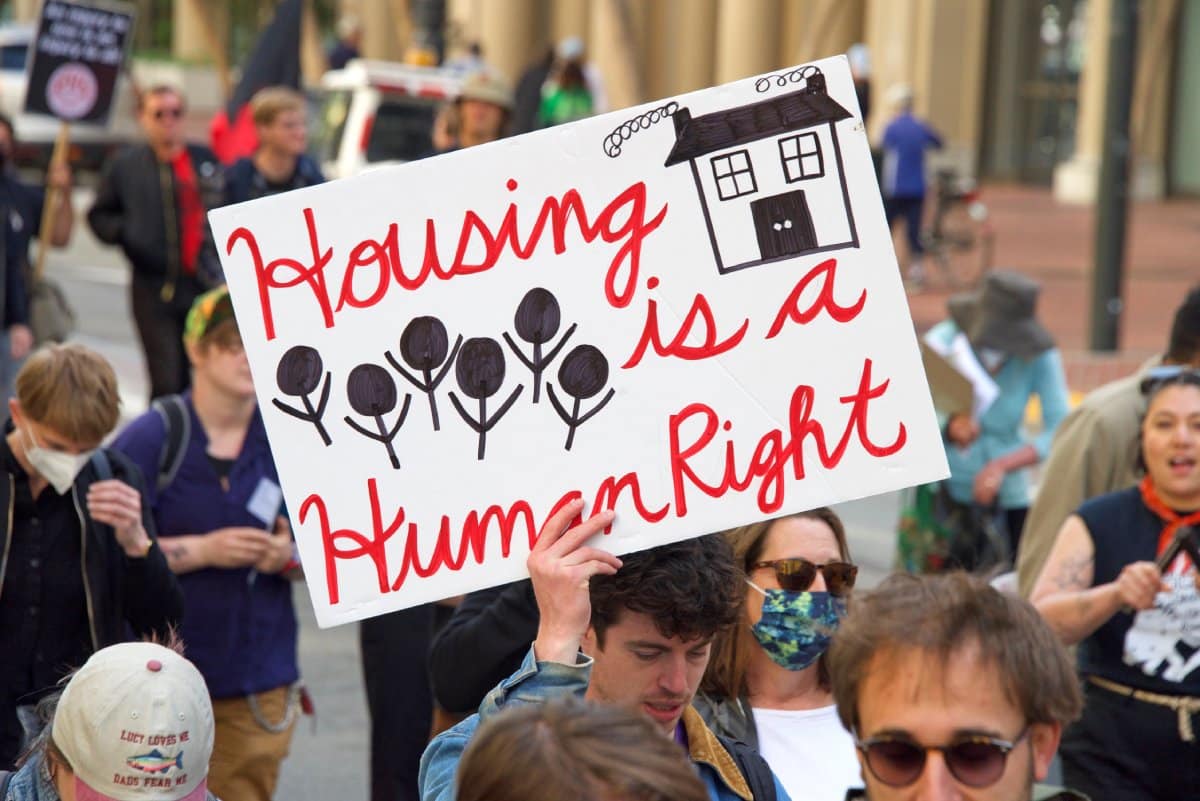California’s ambitious drive towards political correctness is causing a series of unintended consequences that are reshaping the state in unexpected ways. Here are 18 reasons why this push is backfiring:
1. Mass Exodus

California has seen a significant outflow of residents, with many citing high living costs and restrictive policies as primary reasons. According to the U.S. Census Bureau, more than 135,000 people left California in 2020 alone, marking the third consecutive year of population decline.
2. Economic Strain

The cost of living in California is among the highest in the nation, driven up by housing, taxes, and regulations. This economic burden is pushing middle-class families out, leaving behind a stark divide between the wealthy and the poor.
3. Homelessness Crisis

California’s homeless population has surged, partly due to its lenient policies and favorable climate. Cities like Los Angeles and San Francisco are struggling with record numbers of homeless individuals, which some attribute to the state’s tolerant stance attracting those seeking more accepting environments.
4. Governor’s Policies

Governor Gavin Newsom’s progressive policies have been a double-edged sword. While intended to promote inclusivity and equality, critics argue they have led to increased taxes, regulatory burdens, and economic challenges for small businesses and middle-class residents.
5. Subversive Culture

California’s progressive culture, especially in cities like San Francisco and Los Angeles, promotes acceptance and diversity. However, this has also led to challenges, such as increased homelessness and public health issues, due to a lack of stringent enforcement of laws.
6. Impact of Hollywood Elites

Hollywood elites often champion progressive causes, but their influence can sometimes lead to policies that favor symbolism over practicality. The disconnect between wealthy celebrities and the average Californian has created a sense of disillusionment among residents.
7. Housing Crisis

Strict zoning laws and environmental regulations have contributed to a severe housing shortage. As a result, housing prices have soared, making it difficult for many residents to afford homes and leading to increased homelessness.
8. Regulatory Overreach

California’s extensive regulations, aimed at promoting environmental sustainability and worker protections, have also made it one of the most difficult states to do business in. This has driven companies and jobs out of the state.
9. Public Safety Concerns

Lenient policies on crime and law enforcement have led to increased public safety concerns. Cities like San Francisco have seen a rise in property crimes, which many attribute to the decriminalization of certain offenses and a lack of police funding.
10. Educational Challenges

California’s education system, despite significant funding, struggles with performance issues. Political correctness in educational curricula has sparked debates over content and the quality of education provided to students.
11. Healthcare Strain

Progressive healthcare policies, including efforts to provide universal coverage, have placed a significant strain on the state’s healthcare system. The increased demand for services has not been met with adequate supply, leading to longer wait times and reduced quality of care.
12. Environmental Policies

While California leads the nation in environmental initiatives, the aggressive implementation of these policies has led to economic challenges. High energy costs and strict emissions regulations have burdened businesses and consumers alike.
13. Tax Burden

California’s high taxes, intended to fund social programs and infrastructure, have driven many high-income individuals and businesses out of the state. This exodus further strains the remaining residents who shoulder the tax burden.
14. Cultural Polarization

The state’s push for political correctness has polarized its population. Many feel that the emphasis on progressive values has alienated more conservative residents, leading to a cultural divide.
15. Job Market Challenges

The focus on tech and green jobs has left behind workers in traditional industries. Many Californians struggle to find employment in a market that increasingly values high-tech skills over blue-collar labor.
16. Infrastructure Issues

Despite high taxes, California’s infrastructure, including roads, public transportation, and utilities, is in need of significant improvements. The state’s focus on progressive policies often overshadows the practical needs of maintaining and upgrading infrastructure.
17. Public Health and Safety

The state’s liberal stance on drug use and rehabilitation has led to public health challenges. The increase in visible drug use and related health issues in cities is a growing concern among residents.
18. Displacement of Small Businesses

Small businesses face significant challenges due to high operating costs, strict labor laws, and competitive pressures from larger corporations that can better absorb regulatory burdens. This has led to a decline in the number of small, local businesses that form the backbone of many communities.
Balancing Act

California’s push for political correctness aims to create a more inclusive and equitable society. However, the unintended consequences are significant and multifaceted, affecting economic stability, public safety, and overall quality of life. Are these policies creating the California dream or pushing it further out of reach?
Featured Image Credit: Shutterstock / Sheila Fitzgerald.
For transparency, this content was partly developed with AI assistance and carefully curated by an experienced editor to be informative and ensure accuracy.





